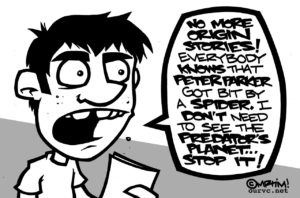Judy Kuhn sings both Florence on the Broadway cast album of Chess and Cosette on the Broadway cast album of Les Misérables. My recent Chess-listening binge got me thinking about the two roles, how much stronger a character Florence is (at least when looking at the stage version), and how Eponine’s greater degree of agency might explain what makes her so popular.
Of course in the book it’s a bit different: There are hints that Cosette would really like to be able to do more on her own, but as a respectable young woman, she doesn’t have many choices available. Éponine can do more because she doesn’t have to worry about losing her respectability.
Check out the full article, Agency: Cosette vs. Éponine vs. Florence on my Reading Les Misérables blog.
 I learned three nice things about the Kindle movie tie-in edition of Les Misérables today:
I learned three nice things about the Kindle movie tie-in edition of Les Misérables today: